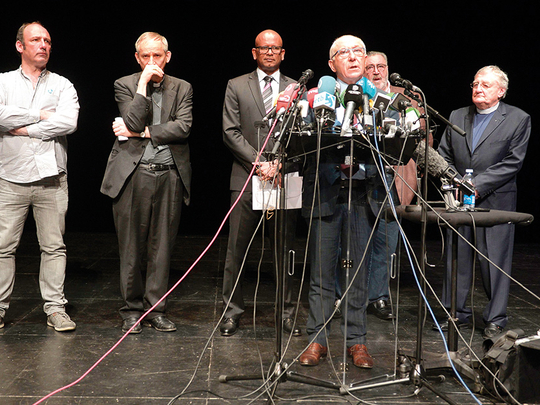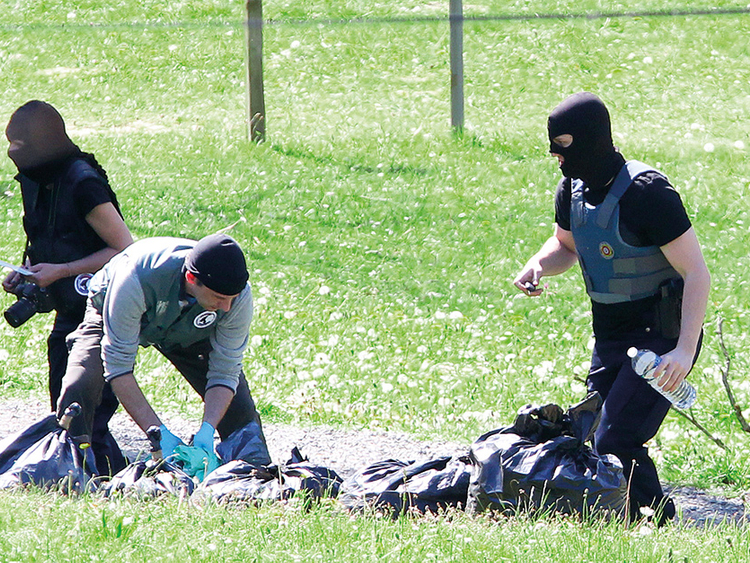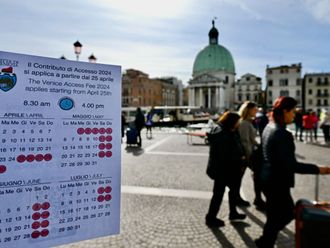
Bayonne, France/Madrid: Basque militant group ETA passed a list with the location of its arms caches to French authorities on Saturday, effectively ending an armed separatist campaign after almost half a century.
ETA, which killed more than 850 people in its attempt to carve out an independent state in northern Spain and southwest France, declared a ceasefire in 2011 but had not surrendered its remaining arms.
Founded in 1959 out of anger among Basques at political and cultural repression under General Francisco Franco, ETA (Euskadi Ta Askatasuna — Basque Country and Freedom) gained notoriety as one of Europe’s most intractable separatist groups.
Saturday’s handover, via intermediaries, of its weapons in the French city of Bayonne will not mean the end of the group as a political entity, but will end an era of political violence in Western Europe.
It comes just as democratically-driven nationalism is stirring across Europe, with Scotland and the Spanish region of Catalonia seeking referendums on independence, while Sinn Fein has urged a vote on taking Northern Ireland out of Britain.
ETA said in a letter to the BBC published on Friday that it had handed over its weapons and explosives to civilian go-betweens who would deliver them to authorities.
Authorities received a list with the locations of 12 weapons caches, Ram Manikkalingam, the chairman of the International Verification Commission (IVC), told reporters in Bayonne. The IVC was set up in 2011 to verify ETA’s declaration of a definitive end to its violence.
The weapons caches could include about 130 handguns and two tonnes of explosives, French anti-terrorism experts say.
It is not yet clear if the process will receive the backing of the Spanish and French governments.
However, the Basque parliamentary spokesperson for Spain’s ruling People’s Party, which has refused to negotiate with ETA and called for its full dissolution, said the handover was a final surrender after six years of broken promises.
“The ETA we’ve known up to now has gone forever,” Borja Semper said outside the legislature in Vitoria-Gasteiz. “What remains to be done is to wipe out the hatred that ETA embedded in a large part of Basque society.”
A government source said Madrid did not believe the group would hand over all its arms, while Spain’s state prosecutor has asked the High Court to examine those surrendered as possible murder weapons used in unresolved cases.
Violent past
ETA’s first known victim was a secret police chief in San Sebastian in 1968 and its last a French policemen shot in 2010.
It chose not to disarm when it called its truce, but has been weakened in the past decade after hundreds of its members were arrested and weapons seized in joint Spanish and French operations.
Popular revulsion at the scale of violent attacks carried out by Islamic militants had also played a part, Paddy Woodworth, who has written in depth about ETA, said.
“It had ceased to be an attractive organisation to join.” The group’s first revolutionary gesture was to fly the banned ‘ikurrina’, the red and green Basque flag, before the campaign escalated in the 1960s into violence that was brutally reciprocated by the Franco regime.
In 1973, ETA targeted Franco’s heir apparent Luis Carrero Blanco by digging a tunnel under the road that he drove down daily to attend Mass. They packed the tunnel with explosives and blasted Blanco’s car over a five-storey building.
The assassination changed the course of Spanish history, as the removal of Franco’s successor led to the exiled king reclaiming the throne and a shift to a constitutional monarchy.
Attacks including a 1987 car bomb at a Barcelona supermarket, which killed 21 including a pregnant woman and two children, horrified Spaniards and drew international outrage.
Gorka Landaburu, who lost his thumb and was left blind in one eye after an ETA letter bomb detonated in his home in 2001, welcomed the disarmament and said lessons had been learned.
“This must never happen again in our country,” he said, standing by the sea in the Basque resort of San Sebastian. “I hope no one ever picks up pistols and bombs to defend an ideology ever again.”













